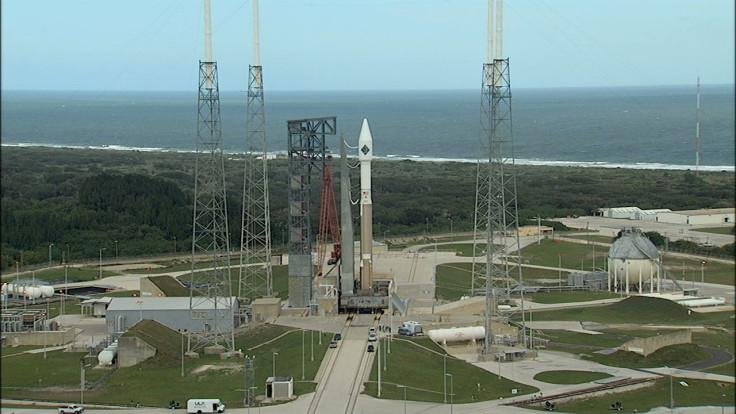Orbital ATK Cygnus Launch Live Stream: Watch The NASA Resupply Mission Liftoff Here

Poor weather scrubbed the return of Orbital ATK Thursday. Rain and clouds prevented the launch of the enhanced Cygnus spacecraft from Florida. NASA rescheduled the launch for Friday, but poor weather may prevent liftoff. The Orbital ATK launch live stream coverage begins at 4:30 p.m. EST with the 30-minute launch window beginning at 5:33 p.m. EST.
Weather conditions deteriorated throughout the day, with rain preventing the launch of the Cygnus spacecraft to the International Space Station. Cygnus will launch from the Space Launch Complex 41 at Cape Canaveral Air Force Station in Florida, atop United Launch Alliance's Atlas V rocket. Friday's launch will be the first time Orbital ATK uses an Atlas V rocket for a Cygnus launch. It's Antares rocket is undergoing design modifications with a return scheduled for mid-2016.
Scheduled cargo launch, new @ISS_Research & more on weekly @Space_Station update! Watch & use #SpaceToGround for Qs https://t.co/LF1826EJiI
— NASA (@NASA) December 4, 2015It looked like Orbital ATK would have to deal with another day of poor weather with meteorologists predicting a 30 percent chance of favorable weather for Friday. The forecast was upgraded to a 40 percent chance. If the launch has to be rescheduled, weather will remain a concern throughout the weekend, according to NASA. Initial forecasts by the Cape Canaveral Air Force Station 45th Weather Squadron indicate a 30 percent chance of favorable weather Saturday and a 40 percent chance Sunday.
This will be Orbital ATK's fourth commercial resupply mission as part of its contract with NASA. The enhanced Cygnus will carry over 7,000 pounds of cargo, scientific instruments and miniature satellites to the space station. If launched prior to 5:41 p.m. EST, Cygnus will reach the ISS Dec. 7. Liftoff after that time will result in the spacecraft arriving Dec. 8. NASA astronauts Scott Kelly and Kjell Lindgreen will grapple Cygnus using the space station's robotic arm. Cygnus will spend a month attached to the ISS before astronauts fill up the craft with trash. Cygnus' mission will end with a fiery reentry.
You can watch the NASA Orbital ATK launch below.
© Copyright IBTimes 2024. All rights reserved.












